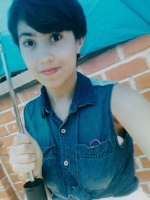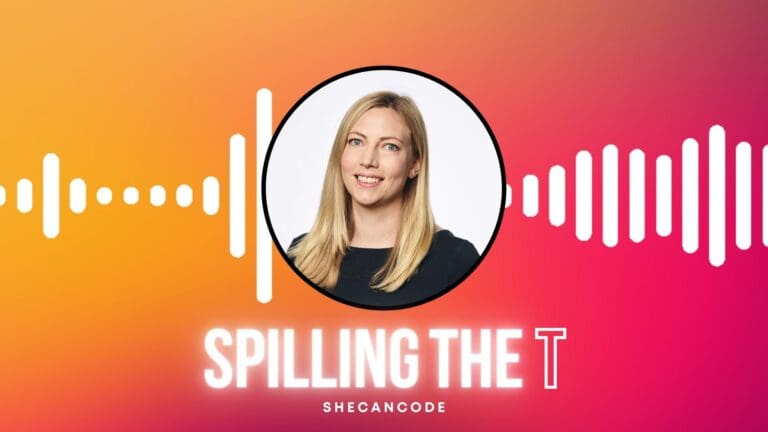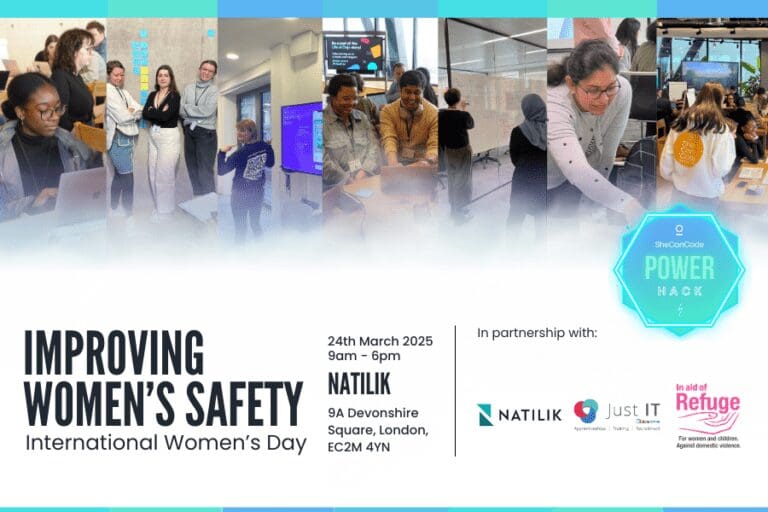I never intended to fall for computer science. He was the geeky kid in the corner of class, and I was the girl up front mocking his pimples. “Devoid of creativity”, “mindless, boring computer work” and ultimately “not for me” were descriptors I was most likely used to describe what coding was a year ago.
Science classes had a tendency to bore me. I much preferred the joy that came from analyzing a book-in English class, or conjugating verbs for my foreign language studies and I had a very constrained view of what someone who likes to code looked like. I thought it was great what people were doing in STEM, and fully supported ending the gender gap that existed in computer science. But, me? Finding an interest in something tech related? I simply couldn’t imagine it.
Discovering Empowerment Through Coding: A Personal Journey
Still, I somehow wound up taking coding classes in the beginning of 2017. For the past few years I had been actively encouraged to learn how to code. My family correctly saw that technology was where the future was heading. We knew that knowing how to code was and is an extremely valuable skill to have. The (unfortunate) lack of people with skills in Computer Science (CS) would work to my advantage.
After some hesitation, I finally agreed to go down the coding rabbithole.
Fast forward to the beginning of 2017 and I signed myself up to the Girls Who Code club hosted in my neighborhood. I found myself in a small, dark room, surrounded by a handful of other girls my age who also had no previous programming experience. They were just as clueless about that whole spiel as I was.
All I knew was that I came to the club to learn- so I could hopefully take my newfound skills in web development and apply them to a job. I honestly felt that it didn’t really matter, whether I necessarily liked coding or not- and I didn’t expect myself to. Our first few classes were tedious, and often times frustrating.
Navigating the Early Stages of Coding: From Basics to Challenges
We started off learning some of the most basic parts of HTML. I remember answering the teachers’ questions about end tags, and learning very basic skills like how to make a paragraph or a header. Memorization had never been my forte, and I learned that that is one of the most important skills to have when first starting off in any coding language.
I think others in the club must have experienced my same hindrance because less and fewer girls were showing up each week to our class. The encouragement from our club facilitators, real women working in computer science, as well as the tasty snacks provided to us by the club hosting center, is what kept the remainder of us girls going those first few irksome classes.

After a while, we finally moved out of the fundamentals of coding, and we began making our own individual web pages to share with each other. My premature impression of coding was starting to fade. But this was no easy feat. I had to physically reach over to that nerdy kid named Computer Science and rip off his prescription glasses. Once I put the frames on for myself and saw a whole new world. I allowed myself to see that coding and my other hobbies actually weren’t so dissimilar.
Our small group begin building a website to help high school learn about college admissions called College Classified in the spring. I’ve always loved creating things: I’m an avid knitter, and can make a pretty sick origami paper crane. My growing knowledge in HTML, CSS, and basic Javascript aided me with my ultimate DIY project.
From Learning Code to Empowering Creativity
Throughout the months of my class, my vocabulary of terms and tags slowly increased. Just like Spanish or Italian, programming terminology became another language I was learning. <Div>s and <p>s and <a>s were new words to me, but not only could I speak them- I could type them. I could apply my new vocabulary and see their impact when I pressed “run”.
- I thought I would have no control as a coder. That it would be every day the same: tiresome and repetitive typing on a computer. But I was wrong- I had all the control.
- I decided where to place images, what font I wanted to use and what information I wanted the computer to output.
- I allowed myself to open up to the idea that this thing called “coding” could actually pair well with my personality and interests.
- I didn’t have to be a science fanatic or someone who had loved who had loved tech since they were a little kid, or any particular type of person at all. I found a love for coding that was completely my own.
Now it’s nearly summer, and my class is over, but I’m still coding. I’m in the process of building myself a writing portfolio with what I’ve learned from GWC. I was also recently accepted into the Girls Who Code Summer Immersion Program. I’m applying to colleges in the fall, and think a minor in Computer Science will be a nice match with my intended English major.
I can’t say that my particular experience will apply to everyone. But I have learned that there is no perfect mold for someone who loves computer science. Whether you’re an artist, an athlete, or a writer, maybe you’ll be like me- maybe you’ll pick up your laptop and be able to find a bit of yourself in the script.
About the author

Adriana Chavez
Follow Adriana: LinkedIn | Github








